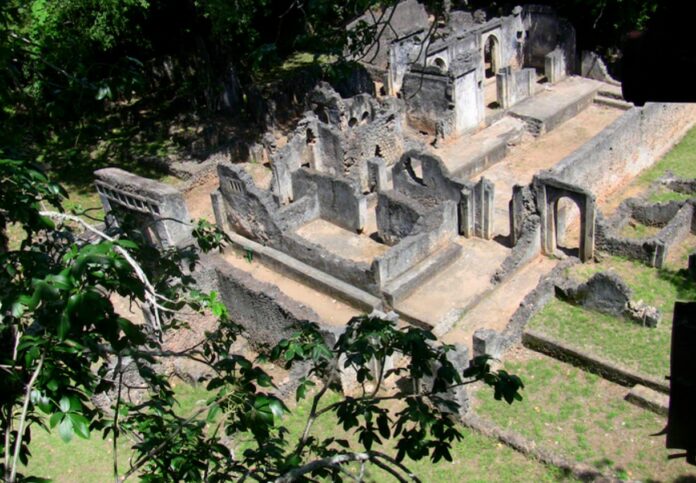The dedicated efforts of a University of South Florida anthropologist have finally paid off as the first-ever ancient DNA from the Swahili Civilization, which dates back to the 7th century, has been unearthed.
The researcher’s life work has led to the discovery, which has the potential to overturn false narratives and restore pride to millions of Swahili descendants.
The study provides much-needed clarity to Swahili heritage, revealing insights into the prosperous trading states along the East African coast.
For 40 years, Chapurukha Kusimba, a professor of anthropology at the University of South Florida, devoted his research to studying the ancestry of the people who constructed the Swahili Civilization spanning from Kenya to Mozambique. Many Swahili descendants have felt robbed of their heritage for centuries due to debates surrounding their ancestry, making Kusimba’s dedication to this study all the more important.
“This research has been my life’s work – this journey to recover the past of the Swahili and restore them to rightful citizenship,” Kusimba adds. “These findings bring out the African contributions, and indeed, the Africanness of the Swahili, without marginalizing the Persian and Indian connection.”
The groundbreaking study, published in the prestigious journal Nature, delves into the DNA of 80 individuals from as long as 800 years ago, making it the first-ever ancient DNA to be uncovered from the Swahili Civilization. Kusimba, who hails from Kenya, spent years gaining the trust of the Swahili people before receiving permission to excavate cemeteries.
In a show of respect for the remains, Kusimba completed the sampling and re-burial process all in one season. Collaborating with renowned geneticists from Harvard and corresponding authors from Rice University and the University of York, Kusimba discovered that the ancestry of those analyzed was a blend of both African and Asian heritage.
The DNA revealed an intriguing pattern, with the vast majority of male-line ancestors coming from Asia, while female-line ancestors hailed from Africa.
Surprisingly, despite intermarrying with people of Asian ancestry, descendants of the Swahili Civilization spoke an African language, rather than an Asian one. This intriguing fact led the researchers to conclude that African women held significant influence in shaping the culture, to the extent that the villages were established prior to the arrival of colonialism from Asia, resulting in women becoming the primary holders of economic and social power.
These findings challenge century-old narratives, constructed by some African natives, which suggest that wealthy Swahilis only claimed to have ancestral connections to Asia in order to downplay their African heritage and attain higher social status and cultural affinities.
Kusimba’s previous work from the 1990s documented the poor treatment of Swahili descendants resulting from these narratives, despite their significant role in trade between Africa and the rest of the Indian Ocean world spanning more than 2,500 years.
According to the study’s results, intermarriage between Asian and African ancestors began over 1,000 years ago, which is much later than when the African villages were first established.
“Our results do not provide simple validation for the narratives previously advanced in archaeological, historical or political circles,” Kusimba points out. “Instead, they contradict and complicate those narratives.”
Kusimba believes that by challenging and overturning narratives imposed from outside sources for political and economic gain, this research brings a sense of peace and restores pride to the millions of people who identify as Swahili today.
Prior to this study, it was difficult to understand how modern-day Swahili people relate to those of the early modern Swahili culture. Moving forward, Kusimba intends to continue his research on Swahili to gather more DNA and create a larger sample size, enabling a more extensive analysis of a broader, more socioeconomically diverse population.
The successful collaboration between anthropologists and geneticists throughout this project suggests that this approach may offer a possible resolution to longstanding questions around the heritage of other groups of people who founded ancient cities and civilizations. This includes the ongoing debate among scholars around whether the ancient Egyptian civilization has African origins.
Image Credit: Chapurukha Kusimba, University of South Florida
